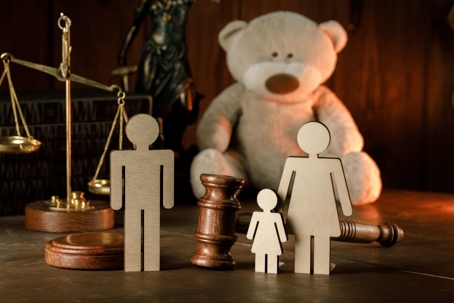


Family law matters, from divorce and child custody to spousal support, are often emotionally charged and complex. In cases where these matters go to court, witnesses can play a key role in helping either party to establish
A character witness is a person who testifies in court to vouch for the moral and ethical qualities of an individual involved in a legal case. In the context of family law cases, these witnesses can play a significant role by providing insight into a person's behavior, values, and personal attributes, which can be crucial in cases like divorce, child custody, or adoption proceedings.
For instance, consider a situation where there's a dispute over child custody. One parent may have been accused of being unfit for custody due to alleged irresponsible behavior. A character witness in this scenario could be someone who knows the accused parent well - perhaps a long-term friend, a coworker, or a relative. This witness could testify about the parent's dedication, love for their children, and their responsible nature, thus challenging the allegations made against them.
In essence, a character witness helps paint a broader and more nuanced picture of a person's character for the court. Their testimony can often provide context and detail that documents and factual evidence alone may not offer. In family law cases, where personal and emotional factors are deeply entwined with legal considerations, the role of a character witness can be pivotal in influencing the final outcome.
Yes, a family member can act as a character witness. However, the court often views them as the weakest kind of character witness because they are so often expected to take the side of the party they are related to (no matter what).
Other people who may act as stronger character witnesses include:
Also referred to as a lay witness, an eyewitness is an individual who has personally witnessed an event or situation and can provide firsthand testimony about what they saw or experienced. In the context of family law cases, an eyewitness can play a crucial role in providing essential evidence and corroboration for events that have taken place within the family dynamic.
Their testimony can be instrumental in validating the claims of one party over another, shedding light on otherwise contested or ambiguous situations, and ultimately influencing court decisions. For instance, in cases involving domestic abuse within a marriage, an eyewitness could be someone who directly witnessed the abusive behavior, such as a neighbor who heard the altercation next door or a family member who saw the aftermath of the abuse.
Expert witnesses are individuals with specialized knowledge, training, or experience in a particular field relevant to the case. Their role is to provide the court with their professional opinion on specific matters within their expertise.
Expert witnesses serve as impartial professionals who can offer valuable insights and analysis that may be beyond the scope of the court's understanding. Their testimony can help clarify complex issues, provide context to evidence, and educate the court on technical or specialized subjects.
Some of the experts that can be invaluable for your case include:
In addition to the aforementioned types of expert witnesses, family law cases may also involve other relevant specialists, such as real estate appraisers, vocational experts, medical professionals, and educational consultants. These professionals can provide valuable insights into property valuations, earning capacities, medical needs, and educational considerations for children, thereby contributing to a comprehensive understanding of the case.
At William Kirby Law, Family Law Attorneys, our team is committed to understanding our client’s case goals and developing a case strategy that supports those goals. In strengthening your case, we can discuss evidence and witnesses that can help your case and how.